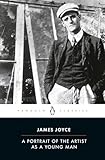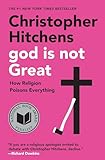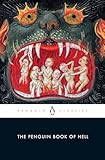1.
Two miles from my childhood home in Burke, Va., is a slice of shoulder along the Fairfax County Parkway. It’s an unassuming patch of asphalt, easily overshadowed by the sports fields stretching behind it, the recreation center in the middle distance where I first learned how to swim, how to keep my head above water without drowning. Still, every time I pass that simple strip of earth on the way to visit my parents for dinner, I slow down as much as traffic will allow. I look for the ghost of a busted brown Buick and, in the backseat, the ghost of a boy who’s just told his father he doesn’t believe in Hell.
Ours was a multi-religious household, which meant Sundays were often split between the area’s community churches (Methodist, Unitarian) and the Islamic community center to which my father, a Muslim who nevertheless wanted his children to think of all religions as inherently the same, was especially dedicated. It was, after all, his culture. I loathed these trips: how he’d make me—never my younger sisters—recite Quranic verses in Arabic; how he’d lecture about God, about prophets and angels, about devils and Hell, as if we were students in a seminary or madrassa. I wanted nothing to do with these conversations, not out of some fervent belief in atheism (that wouldn’t arrive until college) so much as resentment that my other friends, from whose lives God seemed absent, never went anywhere on Sundays.
On one particular drive, which my poor memory can only consign to sometime in the early 1990s, I interrupted my father during one of his talks and told him, apropos of nothing other than to see how he would react, that I didn’t think Hell was real.
The car rushed off the parkway. We jerked to a stop on the shoulder. My father turned around to look at me (it was my youngest sister’s turn in the front passenger seat). He aimed his index finger, raised his voice to tyrannical levels. He screamed my name and asked whether or not I wanted to go to the mosque.
It was, of course, a rhetorical question. The answer was no, but I didn’t say that. I was no Miltonian Lucifer; I had no romantic verses prepared, no winged rebels to back up my proclamation of non serviam. I was just a pre-teen boy churning the waters typical of bi-racial, bi-cultural children in America. So I said yes: yes, I did want to go to the mosque; I did believe in Hell. We lingered on the parkway shoulder in the silence my father used to express his anger, like the terrifying calm between two claps of thunder. Then he checked his side mirror, slipped back out onto the road, and we continued on to the Islamic community center where I’d spend the majority of Sundays until my senior year of high school.
2.
Hell was both the most terrifying and most fascinating aspect of my religious education. Good people went to Heaven; bad people went to Hell. Heaven was clouds and wings and relatives; Hell was fire and monsters and Adolf Hitler. These were simple, obvious truths, tailor-made for a child’s mind.
It was the fire that stuck with me most. The “unquenchable fire” from the Book of Luke, the “lake of fire and brimstone” from the Book of Revelation, the “companions of the Fire” in the Quran’s seventh surah. The relationship between fire and Hell added a strange weight to the fires of my everyday life. I couldn’t help but think about Hell every time I saw a crackling fireplace, every time I heard the scratch of a match over unlit birthday candles. What would it be like to burn forever, with no reprieve? Would it feel like a melting marshmallow? Would it feel like my father’s pizza crust blackening on the grill? Eternal conflagrations—how could one stand to think about it? How could one stand not to think about it?
Then, in fourth grade, I learned it wasn’t fire I should be worried about but nothingness. I was in my first year at a public school after three years at a private Islamic academy. My two new friends were both Italian, both Catholic, both adamant that, because I wasn’t baptized as a child, because a priest had never poured holy water over my forehead, I wasn’t even worthy of Hell. Unbaptized children went to a place called Limbo. I had no idea where they’d learned this and, as a nine year old with a fertile imagination, I didn’t think about asking. The terror was enough confirmation for me.
Soon, baptism became a necessity. Not out of a desire to embrace Catholicism but as an insurance plan for my soul. I asked my parents if I could get baptized (though I didn’t say why). My father shook his head; my mother laughed. I wasn’t going to Hell, they said. Or Limbo, for that matter. I was a good person. And I think I knew I was.
Still. It was impossible for me not to stare sometimes at my friends’ foreheads through their fangs of red and black hair, cleaned of something mine wasn’t. Imagining roaring fire, hot pits—that was taxing enough. But Limbo? A place of nothingness, outside Hell proper? All I could think of was a cold, lightless room in which I was stuck, out of sight and out of mind.
3.
Years later, well into high school, I’d encounter Limbo again through the imagination of a Florentine poet with his own peculiar obsessions about the mechanics and bureaucracy of Hell.
 By this time, my fear of eternal punishment (whether through fire or total absence), had mutated into a voyeuristic love of violence. I was slowly growing more dubious about Hell’s literal existence—but more engrossed by the spectacles of violence it suggested. Violent comic books (Sin City, Preacher), violent films (Se7en, Pulp Fiction), the violent short stories I’d co-author with a friend on my parents’ basement computer: there was a perverse exhilaration in these new preoccupations. I wish I could say that my intentions were noble, that I was on a mission to expose and critique humanity’s capacity for cruelty; in truth, I just wanted to bathe my imagination in blood and guts.
By this time, my fear of eternal punishment (whether through fire or total absence), had mutated into a voyeuristic love of violence. I was slowly growing more dubious about Hell’s literal existence—but more engrossed by the spectacles of violence it suggested. Violent comic books (Sin City, Preacher), violent films (Se7en, Pulp Fiction), the violent short stories I’d co-author with a friend on my parents’ basement computer: there was a perverse exhilaration in these new preoccupations. I wish I could say that my intentions were noble, that I was on a mission to expose and critique humanity’s capacity for cruelty; in truth, I just wanted to bathe my imagination in blood and guts.
 With this same friend, I’d often cull online encyclopedias for strange and interesting stories and facts (the more violent the better). It was in this manner that we discovered Dante’s Inferno, and there it was, what Virgil refers to (in Robert Pinsky’s 1994 translation) as “the sightless zone”:
With this same friend, I’d often cull online encyclopedias for strange and interesting stories and facts (the more violent the better). It was in this manner that we discovered Dante’s Inferno, and there it was, what Virgil refers to (in Robert Pinsky’s 1994 translation) as “the sightless zone”:
…Here we encountered
No laments that we could hear—except for sighs
That trembled the timeless air: they emanated
From the shadowy sadnesses, not agonies,
Of multitudes of children and women and men.
Beyond Limbo, I was astounded by the awful poetry of these punishments, at the gore of the medieval imagination. The twisted necks of fraudulent sorcerers and diviners in Canto XX, their bodies “so grotesquely reshaped, / Contorted so the eyes’ tears fell to wet / The buttocks at the cleft.” The prophet Muhammad in Canto XXVIII, “split open from his chin / Down to the farting-place, and from the splayed / Trunk the spilled entrails dangled between his thighs.” And, of course, the culminating image of horror: Satan himself, a multi-faced, multi-winged beast at the bottom of Hell munching Judas, Brutus, and Cassius as if they were sticks of celery.
To say nothing of the illustrations in the various translations I browsed through at the public library and online, giving weight to my own imagination. The muddy nightmares by Michael Mazur. The graceful etchings of Gustave Doré. The bloodless (and therefore, to my teenage self, boring) watercolors of William Blake. There was also my own embarrassing contribution to this visual canon, in response to an assignment for a young-adult class at the Islamic community center for which we were asked to draw something from the Quran: a cartoon man bracketed by flames, mouth open in agony, eyes near to bursting with terror.
4. A fear of Hell isn’t innate. Rather, like other destructive social ideas, it’s something we’re groomed to believe in from an early age. While I’d slowly begun to realize this, to weigh Hell’s contradictory descriptions against one another and find them wanting, the idea sharpened when I encountered, in 12th-grade honors English class, the third chapter of James Joyce’s Portrait of the Artist as a Young Man.
A fear of Hell isn’t innate. Rather, like other destructive social ideas, it’s something we’re groomed to believe in from an early age. While I’d slowly begun to realize this, to weigh Hell’s contradictory descriptions against one another and find them wanting, the idea sharpened when I encountered, in 12th-grade honors English class, the third chapter of James Joyce’s Portrait of the Artist as a Young Man.
Father Arnall’s seemingly interminable sermon to Stephen Dedalus and the other boys during a religious retreat shocked me with not just its horror but its fanaticism. In excruciating detail, Father Arnall lays bare the sensory details of Hell’s torments:
Every sense of the flesh is tortured and every faculty of the soul therewith: the eyes with impenetrable utter darkness, the noise with noisome odours, the ears with yells and howls and execrations, the taste with foul matter, leprous corruption, nameless suffocating filth, the touch with redhot goads and spikes, with cruel tongues of flame. And through the several torments of the senses the immortal soul is tortured eternally in its very essence amid the leagues upon leagues of glowing fires kindled in the abyss by the offended majesty of the Omnipotent God and fanned into everlasting and ever increasing fury by the breath of the anger of the Godhead.
 One can almost envision Father Arnall’s teeth gnashing as he speaks, froth bubbling at the corners of his lips. It’s a moment that strikes me now as bordering on the epileptic, the orgasmic. Above all, it’s about fear as a teaching tool, as a way to regulate moral behavior. It is, as Christopher Hitchens describes it in God Is Not Great, “one of the great instances of moral terrorism in our literature.”
One can almost envision Father Arnall’s teeth gnashing as he speaks, froth bubbling at the corners of his lips. It’s a moment that strikes me now as bordering on the epileptic, the orgasmic. Above all, it’s about fear as a teaching tool, as a way to regulate moral behavior. It is, as Christopher Hitchens describes it in God Is Not Great, “one of the great instances of moral terrorism in our literature.”
Father Arnall would undoubtedly find much in common with the very real (and appropriately named) John Furniss, a 19th-century Catholic priest whose pamphlet, The Sight of Hell, explicates the sensations of Hell for the instruction of young children. (Some chapters: “Where Is Hell?,” “How Far It Is to Hell,” “The Smell of Death,” “A Bed of Fire,” “The Dungeons of Hell.”). For precocious children wondering what an eternity of punishment feels like, Furniss has surprising first-hand information:
Think that a man in Hell cries only one single tear in ten hundred million years. Tell me how many millions of years must pass before he fills a little basin with his tears? How many millions of years must pass before he cries as many tears as there were drops of water at the deluge? How many years must pass before he has drowned the heavens and earth with his tears? Is this Eternity? No.
5.
I can’t imagine what it would have been like to read Furniss’s words as a child, back when I was susceptible to taking such images, such ideas seriously. Like many childhood preoccupations, my terror of Hell strikes me now, as a 36-year-old atheist, as mind-boggling. After decades of encountering Hell and its ilk in everything from the “house of dust” of the ancient Mesopotamians to the blasted landscapes of Hieronymus Bosch and Pieter Bruegel the Elder, the place has become nothing more than a curiosity, a place of imaginative exploration no more real than Narnia. The punchline to a cruel joke.
 It was with this mindset that I recently indulged in The Penguin Book of Hell, in which Scott G. Bruce excerpts Western visions of punishment stretching from the days of Hesiod and Plato to the Hells of our own making in the concentration camps and rendition sites of the modern world. I read the book with a palpable sense of nostalgia for my own innocence, my old voyeurism. I made a point to do the bulk of my reading on Sunday mornings when, as a child, I would have been trapped in a Buick on the way to an education I didn’t have the words or courage to protest. This is the dark side of wisdom, I suppose: that the knowledge gained often comes too late to change the past when it mattered most.
It was with this mindset that I recently indulged in The Penguin Book of Hell, in which Scott G. Bruce excerpts Western visions of punishment stretching from the days of Hesiod and Plato to the Hells of our own making in the concentration camps and rendition sites of the modern world. I read the book with a palpable sense of nostalgia for my own innocence, my old voyeurism. I made a point to do the bulk of my reading on Sunday mornings when, as a child, I would have been trapped in a Buick on the way to an education I didn’t have the words or courage to protest. This is the dark side of wisdom, I suppose: that the knowledge gained often comes too late to change the past when it mattered most.
I’ve long since made my atheism known to my father, who’s mellowed in recent years. I fling casual arguments against the existence of God at him like confetti. He shrugs them off. Perhaps he’s that unwavering in his beliefs. Or maybe he’s given up trying to mold me, now that I’m at an age where I decide whether or not I want to get into a car, where I get to choose how to spend my Sundays.
And the Catholic kids from elementary school with their cautionary tales of Limbo? I don’t think about my forehead, or theirs, any longer. One of them has gone off to his own life; when we reconnect, none of our conversations revolve around anything so serious. The other one died in 2002, hit by a car on his college campus. We weren’t close, but it was the first death of someone I knew and so it lingered with me—and sometimes still does. Did that water poured over his head as a baby save his soul? Did it ensure his entrance into a better place than this world? I imagine his family thinks so. As for me, I don’t know where he is. But I know where he isn’t.
The post My Adventures in Hell appeared first on The Millions.
Source : My Adventures in Hell











